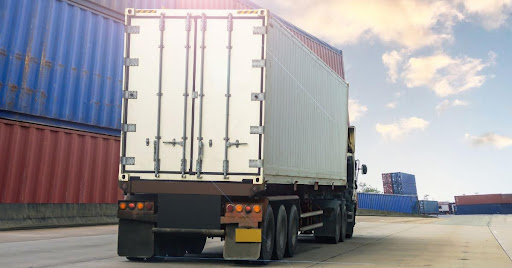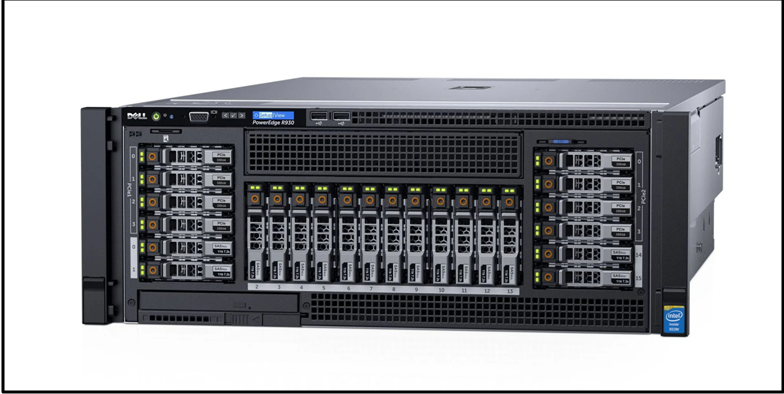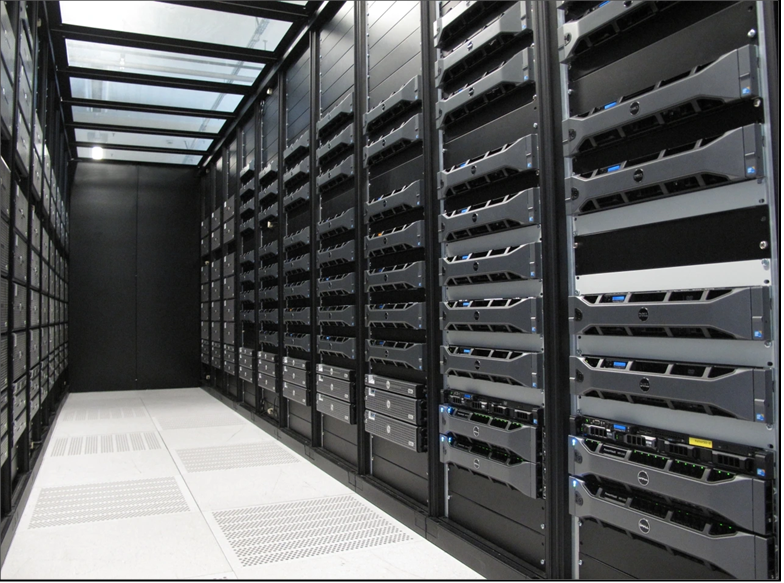BUSINESS
What is truck freight shipping?

With online markets in boom businesses today greatly rely on freight trucking shipping services for moving their goods all across the country. And it’s not only about transporting finished goods; they also transport raw materials, hence playing an important role in both streams of the supply chain. But what is truck freight shipping?
Freight trucking shipping services aren’t similar to the smaller package delivery services; instead, they transport items in bulk that are too large or heavy for regular shippers like UPS Or FedEx. They are used by businesses of all sizes as they are a cost-effective and dependable solution.
Types of truck freight shipping
Full Truckload (FTL) shipping
FTL shipping is ideal when you need the entire trailer for your shipment. This means your cargo is the only item in the truck. And the truck moves directly from point A to point B without stopping for other deliveries. Suitable for large shipments, typically over 15,000 pounds, or for businesses that require fast time-sensitive delivery. Because there are no other freights along with your freight, FTL shipping reduces the risk of theft and damage. It also gives you more control over the type of truck or trailer you use, such as temperature-controlled options for perishable items.
Less than Truckload (LTL) shipping
If your shipment isn’t large enough to fill an entire trailer, LTL is the way to go. With LTL, your freight shares space with goods from other businesses. This helps save money since you’re only paying for the space your shipment takes up. LTL is best for smaller shipments, usually ranging from 150 to 15,000 pounds. While it’s more affordable than FTL, keep in mind that LTL shipments might take longer to arrive because the truck will make multiple stops along the way to unload and load other freight. And that’s why there is also the risk of damage as goods are handled multiple times during the journey.
Partial truckload shipping
This type of truck freight shipping, as the name suggests, comes between FTL and LTL. It is used when your shipment is too big for LTL but isn’t big enough to fill the entire truck. You’ll share the truck with only a few other shippers, which reduces the number of stops and handling compared to LTL. This option works well for shipments over 5,000 pounds or for businesses that need to balance cost and delivery time.
How much does truck freight shipping cost?
Truck freight shipping rates vary based on size, weight, and destination. The rates can be easily available online or on call after telling the delivery zip code. In some circumstances, extremely large or heavy items may need to be quoted by a freight trucking shipping service provider. In these cases, their customer service department will contact you with a shipping quote before they ship the order.
Why is truck freight shipping so expensive?
Truck freight shipping is complicated. It requires dozens of shipments to be consolidated onto one truck. They come from different sources and are headed to different destinations. The shipments are often unloaded and reloaded several times at a shipping terminal. This means it usually takes longer and costs more than parcel shipping.
How to prepare your shipment for truck freight shipping?
Proper shipment preparation is instrumental for a smooth truck shipping experience.
Pallet selection
Use appropriate pallets that can safely support your goods during transport. Consider factors like weight distribution and stacking stability.
Packing securely
Ensure your goods are securely packed within the pallets using proper strapping, wrapping, or other protective materials to prevent damage during transit.
Label clearly
Clearly label each pallet with essential information such as weight, dimensions, contents, and any special handling instructions.
Documentation
Prepare accurate and complete shipping documentation, including bills of lading and commercial invoices, to facilitate seamless custom clearance (if applicable) and delivery.
JJT transportation & logistics
At JJT Transportation and Logistics, we specialize in freight trucking shipping services. Unlike some carriers, we offer direct less-than-truckload (LTL) shipping, saving you money by consolidating your shipment onto a freight truck. With our extensive nationwide network, you don’t have to change carriers as your shipment moves from one region to another. Also, our expedited service and specialized handling for express, refrigerated, and hazardous materials shipments ensures that your shipment is delivered safely and on time.
BUSINESS
Find the Best Server Deals for Your Business Needs | Top Tips

How to Find the Best Server Deals for Your Needs
In today’s fast-paced digital world, having a reliable server is crucial for businesses, developers, and tech enthusiasts alike. Whether you’re setting up a new business infrastructure, upgrading your current system, or simply exploring different server configurations, finding the best server deals can make all the difference. However, with countless options available, navigating the market can be overwhelming. That’s why we’ve put together this comprehensive guide to help you secure the best deals tailored to your needs.
Understanding Your Server Requirements
Before jumping into the world of server deals, it’s essential to evaluate your needs. Just like any other tech purchase, understanding your requirements is the first step in making an informed decision. A server that works well for one business might not suit the needs of another. So, take the time to ask yourself the following:
- What is the primary purpose of the server? Are you hosting a website, managing databases, or running applications? Each of these functions may require different server specifications. For instance, a website hosting server will require less processing power compared to a high-performance server for large-scale applications.
- What performance specifications do you require? This includes considering the processor speed (CPU), the amount of RAM (random access memory), and the type of storage. If your business needs faster data access, SSDs (solid-state drives) are recommended over traditional HDDs (hard disk drives). Also, don’t forget about bandwidth; the more traffic or data your business handles, the more bandwidth you’ll need.
- What level of security do you need? If you’re dealing with sensitive or confidential data, security should be a top priority. Look for servers that offer robust security features like encryption, firewalls, and data protection measures. Security breaches can be costly and detrimental to your business, so it’s important to get a server that’s up to the task.
- What is your budget? Define a budget range to filter your options more effectively. Servers can range from a few hundred dollars for basic models to several thousand for high-end configurations. Setting a budget will help you narrow down the possibilities and avoid spending more than you need.
Once you have a clear idea of your requirements, you can move forward with finding the best deals that match your needs.
Where to Look for the Best Server Deals
With numerous vendors offering server discounts, it’s important to know where to look. Finding the best deals often means doing a little bit of research across multiple platforms. Some of the top places to find server deals include:
- Manufacturer Websites – Dell, HP, Lenovo, and other well-known brands often have exclusive discounts available directly on their websites. These deals can range from limited-time promotions to discounts on refurbished models. Manufacturer websites usually offer the advantage of purchasing directly from the source, often with warranties and customer support options.
- Technology Marketplaces – Websites like Amazon, Newegg, and eBay can offer competitive pricing on refurbished and new servers. Sometimes, you’ll find a fantastic deal on a server bundle that includes additional accessories like networking equipment or storage drives.
- Specialized Server Deal Platforms – Platforms that focus exclusively on server hardware often offer curated deals. One such option is cloud ninja server deals, which provides high-quality refurbished servers at great prices. These platforms might also offer unique configurations tailored for specific industries or use cases.
- Tech Forums and Communities – Engaging with IT communities and forums can help you find hidden deals and recommendations. Many tech enthusiasts, developers, or IT professionals discuss the latest deals and discounts they’ve encountered, and you can often find valuable insights. Online forums like Reddit or specialized tech forums like Spiceworks are good places to start.
- Seasonal Sales & Promotions – Black Friday, Cyber Monday, and back-to-school promotions often feature great discounts on tech products. These sales events are a great time to snag a high-performance server at a fraction of the price, but keep in mind that stock may run out quickly, so act fast.
 Key Factors to Consider When Choosing a Server Deal
Key Factors to Consider When Choosing a Server Deal
Finding a great price is only part of the equation. It’s equally important to ensure that the deal provides value for your investment. After all, you don’t want to end up with a server that doesn’t meet your needs or fails to perform in the long run. Consider the following factors when evaluating server deals:
1. Performance & Reliability
The server should be powerful enough to handle your workload without lagging or crashing. Performance isn’t just about raw power; reliability is just as important. Your server should provide consistent performance over an extended period. Look for benchmarks and customer reviews to assess real-world performance. A deal that looks great on paper might not be as reliable in practice. Also, consider whether the server can handle future upgrades, such as additional storage or increased RAM, so that it doesn’t become obsolete too soon.
2. Warranty & Support
When you buy a server, especially for business use, you want to ensure that you’re covered if something goes wrong. Check if the seller offers a warranty, return policy, or technical support. A deal without a warranty might be too risky, especially for mission-critical tasks. Many manufacturers offer extended warranty options, which can provide peace of mind. Additionally, consider whether the seller offers 24/7 customer support in case of emergencies.
3. Scalability
As your business grows, your server should be able to scale with you. Opt for a model that allows for easy upgrades. For instance, if you anticipate needing more storage or better processing power in the future, make sure the server supports these upgrades. Many businesses outgrow their initial server setup, so purchasing a scalable server ensures you won’t have to replace your infrastructure entirely as your needs evolve.
4. Energy Efficiency
Servers consume a lot of power, and energy costs can add up over time. Choosing an energy-efficient model can save you money on electricity bills in the long run. Modern servers come with power-saving features such as variable-speed fans and energy-efficient processors. Be sure to check the Energy Star ratings of the server models you’re considering. Servers with higher energy efficiency tend to have a lower carbon footprint, making them more environmentally friendly as well.
5. Refurbished vs. New
Buying refurbished can save you a significant amount of money while still providing great performance. Refurbished servers are often thoroughly inspected and tested to ensure they work like new. Many businesses and IT professionals prefer refurbished servers due to the cost savings they offer. However, make sure you buy from a reputable seller who certifies their refurbished products. Also, look for models that come with a warranty, so you have protection in case something goes wrong.
When to Buy: Timing Your Purchase Right
Timing is key when purchasing a server. While there are always deals to be found, certain times of the year offer better opportunities to save. The best times to find server deals of the week include:
- End of the Fiscal Quarter – Many companies have sales quotas they need to meet, which often leads to discounts on inventory. This is a great time to grab deals on servers as companies look to offload stock before the end of the quarter.
- Holiday Sales – Black Friday, Cyber Monday, and Prime Day are known for huge discounts on tech products. These sales events are an ideal opportunity to secure a top-quality server at a fraction of the cost. Just make sure to research ahead of time so you know what kind of deals to expect.
- Product Launches – When new server models are released, older models tend to drop in price. If you don’t need the latest and greatest features, purchasing an older model can be a smart move. The performance difference may not be noticeable, but the cost savings will be significant.
- Refurbished Sales Events – Many companies run discounts on certified pre-owned servers throughout the year, and this is often the best time to pick up a high-performance model at a steep discount.
Best Practices for Securing the Best Server Deals
Now that you know where and when to buy, follow these best practices to get the best deals:
- Compare Prices Across Multiple Platforms – Don’t settle for the first deal you see; always compare across different vendors. You might find the same server at different prices, and some platforms offer additional perks like free shipping or extended warranties.
- Look for Bundle Offers – Some deals include additional accessories or software, providing extra value. For example, you might find a server bundle that includes storage drives, additional RAM, or even software packages that can help you get up and running faster.
- Sign Up for Alerts – Many platforms offer deal alerts that notify you when prices drop. This can be especially helpful if you’re looking for a specific model or deal. Signing up for newsletters from manufacturers and tech marketplaces can also keep you in the loop about upcoming promotions.
- Use Discount Codes & Cashback Offers – Check for available promo codes or use cashback credit cards for extra savings. These small savings can add up, helping you get even more value for your purchase.
- Read Reviews & Seller Ratings – Ensure you’re buying from a reputable seller by checking reviews and ratings. Look for feedback on the seller’s customer service, shipping times, and the condition of the products.
 Conclusion:
Conclusion:
For those looking for a trusted source of high-quality servers at unbeatable prices, Cloud Ninjas is a top choice. They offer reliable refurbished servers, ensuring that you get the best performance at a fraction of the cost. By staying informed and comparing options, you can find the ideal server that meets your needs and budget. Take your time, do your research, and make a smart investment in the right server. Happy shopping!
BUSINESS
How Issues at Avaya Could Impact Large Business Operations

Recent challenges at Avaya, a key player in business communication systems, have raised concerns for large enterprises that rely on their infrastructure. The company’s recent layoffs and restructuring efforts have strained its ability to provide consistent and reliable services. These issues can ripple effect on businesses that depend on their systems for smooth operations. Below, we will explore the potential impacts on large business operations and provide strategies to manage the risks. Keep reading to understand how disruptions at Avaya could affect communication systems and what actions businesses should take.
Disruptions in Communication Infrastructure: A Growing Concern

Large organizations rely heavily on a robust communication infrastructure to maintain smooth operations. Avaya, known for its communication systems, has become integral to managing customer interactions, internal communication, and collaboration across departments. However, recent instability at the company has raised doubts about the future reliability of their services.
The recent layoffs have left Avaya with fewer resources, reducing its ability to provide timely support and system upgrades. This can directly impact the performance of business-critical communication tools like call centers, VoIP services, and video conferencing. If Avaya’s systems fail to operate as expected, businesses could face service reliability, security, and responsiveness issues.
Larger enterprises may experience operational delays as communication tools become unreliable or unavailable. Without a stable communication network, businesses risk increased downtime and interruptions, directly affecting productivity. This is particularly critical for companies that rely on cloud-based solutions or hosted services offered by Avaya for customer support, sales, and team collaboration.
The potential fallout from these disruptions is substantial, especially for businesses with a global presence or those dependent on 24/7 customer interaction. Miscommunication or breakdowns in service could lead to dissatisfied customers, tarnished reputations, and financial loss. What the Avaya layoffs mean for large businesses goes beyond short-term service interruptions; it poses a long-term risk to business continuity.
Operational Efficiency at Risk: What Businesses Need to Know

Operational efficiency hinges on the seamless integration of communication tools within an enterprise’s infrastructure. Avaya’s offerings, which include unified communications, cloud services, and contact center solutions, play a pivotal role in enhancing collaboration and streamlining workflows.
Employees face challenges accessing critical information or collaborating across teams when communication systems are disrupted or degraded. The result is lower productivity, more errors, and missed deadlines, all contributing to a decline in operational performance. As the risk of service degradation increases, businesses must quickly assess their vulnerability to these disruptions and take proactive steps to mitigate them.
Organizations might sometimes experience performance delays as cloud solutions or VoIP systems struggle to maintain consistent uptime. Employees may be unable to connect with clients or colleagues, creating bottlenecks that slow down project timelines. Moreover, relying on an unstable vendor creates a higher risk, particularly for industries that demand high operational reliability, like finance or healthcare.
The fallout from this disruption could be far-reaching if businesses do not react swiftly. Loss of service or failure to meet customer expectations can impact the trust and loyalty of key clients. Companies must prioritize identifying potential risks and seek alternative solutions to safeguard their operational efficiency against unexpected interruptions in communication infrastructure.
Mitigating the Impact: Strategies for Large Enterprises
Large enterprises can take several steps to mitigate the impact of disruptions caused by Avaya’s challenges. First, it is essential to assess the current dependence on Avaya’s services and identify critical communication points that need immediate attention. By conducting an in-depth infrastructure audit, businesses can better understand where vulnerabilities may exist and which areas need alternative solutions.
Exploring backup options or secondary vendors might be prudent for organizations relying on Avaya’s cloud-based systems. Diversifying communication providers helps spread the risk, reducing the dependency on a single company. A multi-vendor strategy ensures that if one system falters, a reliable alternative exists to maintain business continuity without disruptions.
Another key strategy involves improving internal communication and collaboration platforms to increase the resilience of day-to-day operations. Enterprises should invest in scalable, secure alternatives that align with long-term business needs. Developing strong relationships with alternative service providers ensures businesses have a responsive support system that is ready in case of emergency or failure.
Lastly, staying informed and proactive can make all the difference in minimizing the impact of these challenges. Continuously monitoring the performance and reliability of communication systems and fostering a flexible technological infrastructure will allow businesses to address disruptions swiftly.
Altogether, businesses must remain vigilant and adaptable to Avaya’s challenges to minimize potential disruptions. By diversifying communication solutions and strengthening their infrastructure, organizations can safeguard operations and maintain efficiency during uncertain times.
BUSINESS
Enhancing Business Agility in the Cloud Era

In today’s fast-paced business environment, where technology is evolving at an unprecedented rate, companies must adapt rapidly to remain competitive. Cloud technology has emerged as a key enabler for enhancing business agility, allowing companies to pivot and innovate swiftly. Embracing the cloud means businesses can more effectively allocate resources, optimize processes, and reduce operational costs, paving the way for sustainable growth and innovation. This transformation supports immediate needs and positions companies to anticipate future trends and challenges confidently.
At its core, cloud agility empowers businesses to scale operations and swiftly respond to dynamic market needs flexibly. With cloud solutions, companies can avoid heavy initial capital investments while accessing scalable resources that adapt to business growth. This agility is essential in navigating the complexities of a digital-driven economy, ensuring that businesses remain resilient and proactive in the face of change. Moreover, cloud agility facilitates better decision-making through real-time data insights, enabling companies to align their strategies promptly with market demands. The cloud’s inherent flexibility allows organizations to experiment and innovate without fearing infrastructural constraints, continually refining their offerings to stay competitive.
Key Takeaways:
- Discover how cloud technology is reshaping business models.
- Learn strategies to improve agility and adapt swiftly to market changes.
- Explore real-life examples of companies thriving with cloud solutions.
Understanding Cloud Agility
Cloud agility represents a paradigm shift in how businesses approach adaptability. By leveraging cloud technology, companies can swiftly realign their resources in response to market fluctuations and new opportunities. This framework allows enterprises to dynamically scale their operations, pursuing innovation without committing to physical infrastructure investments. Partnering with an AWS consulting partner can streamline the integration of cloud solutions, maximizing operational efficiency and fostering a culture of continuous improvement. Cloud agility eliminates barriers to scaling innovation and deploying solutions that meet ever-changing customer demands, maintaining relevance in a competitive market. Additionally, cloud agility empowers organizations to rapidly diversify their product and service offerings, meeting niche consumer needs and gaining a larger market share. The ability to quickly deploy and test new ideas in the market provides a significant strategic advantage.
Key Factors Driving Cloud Adoption
Businesses across the globe are rapidly adopting cloud technology, driven by compelling benefits such as cost efficiency, enhanced scalability, and increased operational flexibility. As detailed in a recent report on cloud adoption, organizations are increasingly investing in cloud solutions to gain a competitive edge. Cloud computing allows firms to streamline processes, reduce overhead costs, and access advanced technologies like artificial intelligence and machine learning that are vital for staying ahead in the digital age. Furthermore, the cloud’s remote capabilities promote decentralization, enabling companies to tap into a global talent pool and cultivate a resilient workforce. This strategic advantage is essential for fostering innovation and maintaining a dynamic and productive corporate culture.
Benefits of Business Agility in the Cloud Era
Adopting cloud technology offers numerous notable advantages, transforming the way companies function. The capacity to innovate more swiftly results in shorter time-to-market for new products and services, closely matching consumer expectations. Cloud solutions provide unmatched collaboration possibilities, facilitating seamless teamwork for global teams. Disaster recovery protocols, another crucial benefit, ensure that businesses can maintain continuity and quickly recover from unexpected disruptions, enhancing overall organizational resilience. With cloud-based tools, enterprises can achieve operational agility that significantly improves customer satisfaction, fostering strong brand loyalty. This immense flexibility not only strengthens existing business models but also opens pathways for business models previously deemed too risky or costly to pursue.
Strategies for Implementing Agile Cloud Solutions
Businesses must devise strategic plans tailored to their unique needs for successful cloud adoption. Here are key strategies to consider:
- Understand your needs: Conduct a thorough analysis to identify business goals and technical requirements. Customizing cloud strategies based on specific needs ensures more effective adoption. Being clear about objectives helps minimize wasteful expenditures and enhances the focus on outcomes.
- Choose the right partners: Collaborating with reputable service providers with an in-depth understanding of your industry can significantly ease the transition to cloud technology. This partnership ensures that best practices are followed, thus minimizing the potential for costly missteps.
- Start small and scale: Initiating cloud projects with smaller objectives allows businesses to make incremental changes, build confidence, and steadily scale operations. This approach minimizes risk and maximizes learning opportunities. Organizations can ensure that their expansion is controlled and sustainable by iteratively developing and integrating cloud solutions.
Addressing Common Challenges in Cloud Transition
While cloud adoption has several advantages, it also presents challenges concerning data security and integration complexities. Companies must adopt advanced security measures to ensure data protection across cloud applications. Leveraging guidance such as Microsoft’s cloud security best practices can help organizations fortify their defenses, providing robust security protocols safeguarding sensitive information while navigating the transition seamlessly. Additionally, businesses must carefully plan the migration process to avoid disruptions and ensure the new systems integrate smoothly with existing technological frameworks. Anticipating and preparing for cultural shifts within the organization is also crucial, as introducing new technologies can significantly change internal processes and workflows.
Real-World Success Stories
Several companies across various industries have successfully enhanced their business agility by utilizing cloud solutions. For example, a renowned retail giant transformed its supply chain management system with cloud technology, improving efficiency and boosting customer satisfaction. Logistic costs were reduced, and response times to customer demands were significantly shortened, demonstrating the tangible impact of cloud agility on operational success. Such transformations illustrate how cloud technology can drive real competitive advantage, helping businesses meet current market demands and anticipate future trends. These cases showcase the potential for cloud solutions to overcome existing challenges and open new opportunities for growth and expansion.
Future Trends in Cloud Agility
The future of cloud agility points toward trends such as integrating sophisticated technologies like hybrid cloud models and edge computing. With these advancements, businesses can leverage real-time data processing capabilities at scale, pushing the boundaries of innovation. Artificial intelligence will further integrate into cloud platforms, offering advanced analytics and decision-making capabilities. These trends signify a transformative journey for businesses, where agility and technology work hand-in-hand to unlock new potential. As these technologies mature, they will drive a more interconnected and efficient global economy characterized by robust ecosystems of digital collaboration. Embracing these future possibilities ensures businesses remain at the forefront of technological adoption, securing their competitive advantage for years.
Final Thoughts
Cloud agility is not just a tactical benefit but a strategic necessity for companies seeking to succeed in today’s and tomorrow’s market environment. Organizations that focus on and allocate resources to agile cloud strategies place themselves at the leading edge of innovation, guaranteeing they are prepared to capture new opportunities and maintain long-term success. By embracing and evolving with cloud technologies, businesses can achieve unprecedented growth and operational excellence. The ongoing enhancement of digital capabilities will likely yield even more disruptive innovations, fundamentally altering how industries operate and interact. Preparedness and adaptability will remain key as businesses navigate this exhilarating era of technological advancement and potential.
-

 BLOG2 months ago
BLOG2 months agoIZoneMedia360 .Com: Exploring the Features and Benefits
-

 BLOG5 months ago
BLOG5 months agoAbout Blog TurboGeekOrg: A Go-To Hub for Tech Enthusiasts and Latest Innovations
-

 BLOG5 months ago
BLOG5 months agoWhat is a Golden Transit in Magi Astrology?
-

 BLOG2 months ago
BLOG2 months agoA Complete Guide to ProcurementNation.com Shipping
-

 ENTERTAINMENT5 months ago
ENTERTAINMENT5 months agoTyquaez Pickett: A Rising Star in the Entertainment World
-

 NEWS1 month ago
NEWS1 month agoChloe Berger News: Insights on Employee Rights and Talent Retention
-

 HOME2 months ago
HOME2 months ago5StarsStocks.com Nickel: Invest for a Bright Future
-

 BLOG4 months ago
BLOG4 months agoWho Is Hall Sinclair? The True Story of Olivia Colman’s Son
